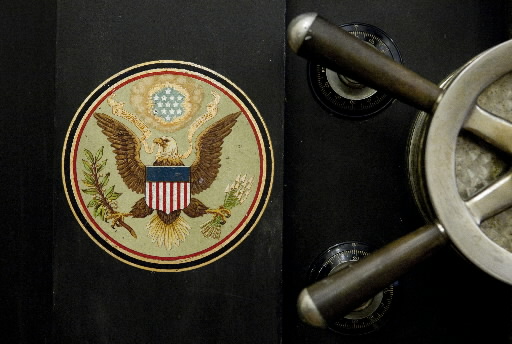Today's auction of five-year notes seen throwing off puny 0.885%: returns for the year have been stellar
The Treasury's $35 billion sale of five-year notes may draw a record low yield of 0.885 percent, according to the average forecast in a Bloomberg News survey of seven of the Federal Reserve's 21 primary dealers.
The securities, which mature in December 2016, yielded 0.891 percent in pre-auction trading. The record low auction yield of 0.937 percent was reached last month. The highest five- year auction yield in 2011 was 2.26 percent at the March sale. Bids for today's sale are due by 1 p.m. New York time.
Today's offering is the same size as the past 15 monthly five-year debt auctions.
The November five-year sale's bid-to-cover ratio, which gauges demand by comparing the amount bid with the amount offered, was 3.15. The average ratio at the past 10 offerings was 2.85.
Indirect bidders, an investor category that includes foreign central banks, purchased 45.3 percent of the notes at the November offering, compared with the 10-auction average of 42.1 percent.
Direct bidders, non-primary dealers that place their bids directly with the Treasury, bought 9.6 percent of the securities at last month's offering. That compares with an average of 11.2 percent at the past 10 sales.
Five-year notes have returned 9.2 percent this year, compared with a 10.1 percent gain for the broader Treasury market, according to Bank of America Merrill Lynch indexes.
Second of Three
Today's auction is the second of three note sales totaling $99 billion this week. The U.S. sold $35 billion of two-year notes yesterday and will auction $29 billion of seven-year securities tomorrow.
There are $58.2 billion of coupon securities maturing this week, so the week's note auctions will raise $40.8 billion of new cash, according to data compiled by Bloomberg. Treasury has raised $354.7 billion of new cash this fiscal year, which started Oct. 1, compared with $1.1 trillion last fiscal year.
The Fed's primary dealers trade government securities with the central bank and are obligated to bid in U.S. debt auctions.
--Bloomberg News--







